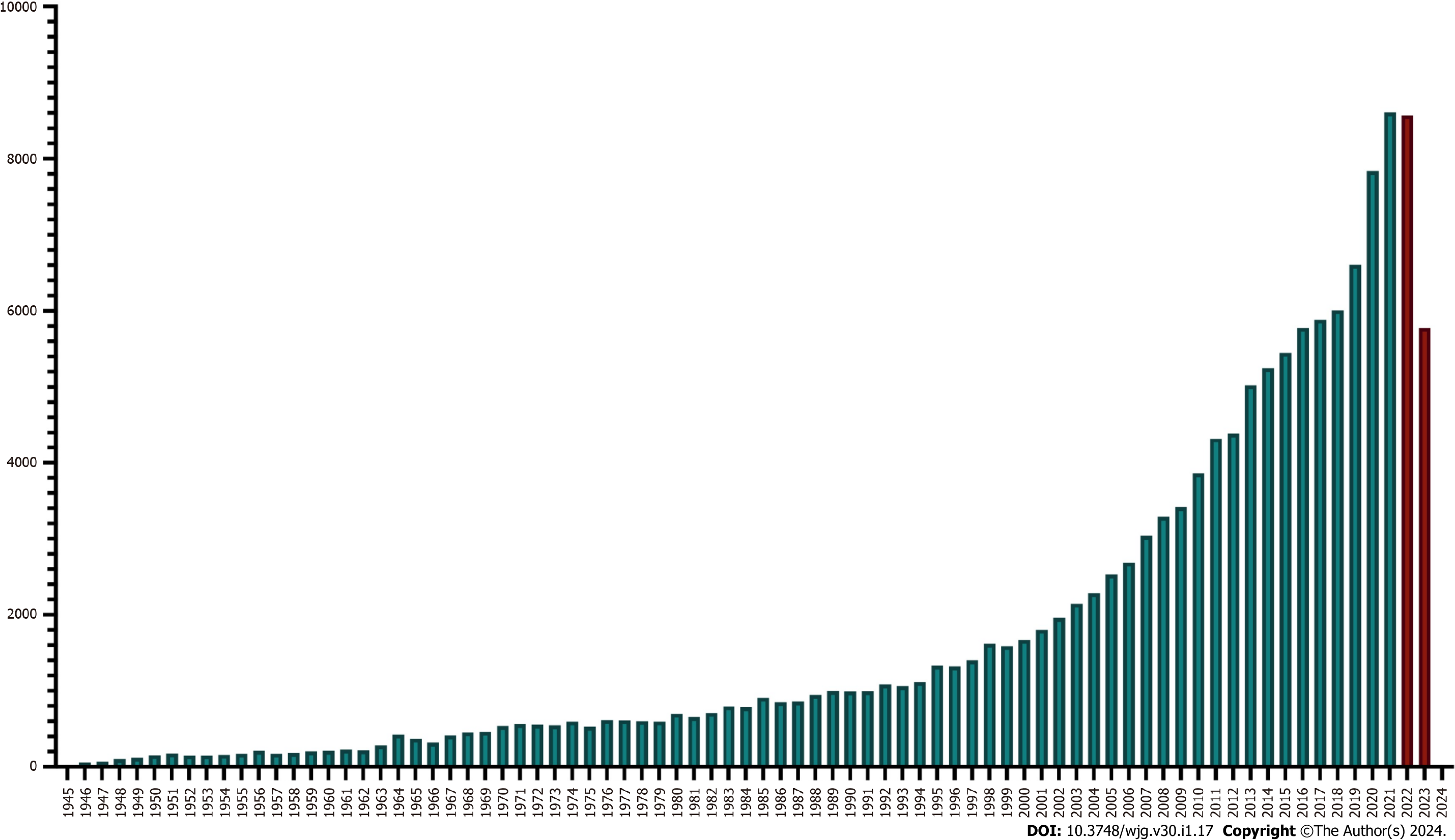Copyright
©The Author(s) 2024.
World J Gastroenterol. Jan 7, 2024; 30(1): 17-33
Published online Jan 7, 2024. doi: 10.3748/wjg.v30.i1.17
Published online Jan 7, 2024. doi: 10.3748/wjg.v30.i1.17
Figure 2 Chat Generative Pre-trained Transformer lacks an update.
This graph collects all papers indexed in PubMed® by typing (on September 3, 2023, at 4:50 pm) the keyword “inflammatory bowel disease” since 1945. As can be seen from the graph, there has been a similar exponential growth until recent years. As stated in the outputs by Chat Generative Pre-trained Transformer (ChatGPT), the threshold for updating this system is until September 2021. From the analysis of this graph, computing papers indexed in 2022 and 2023 and papers ready for indexing in 2024 (i.e., excluding papers from October to December 2021), a number of 14346 papers (red colour) excluded from ChatGPT’s evaluation is calculated. ChatGPT does not have PubMed® as its sole training source but a wide variety of other sources. However, this graph gives an idea of how much informational load ChatGPT loses by providing potential out-of-date responses (considering only one database, i.e., PubMed®).
- Citation: Gravina AG, Pellegrino R, Cipullo M, Palladino G, Imperio G, Ventura A, Auletta S, Ciamarra P, Federico A. May ChatGPT be a tool producing medical information for common inflammatory bowel disease patients’ questions? An evidence-controlled analysis. World J Gastroenterol 2024; 30(1): 17-33
- URL: https://www.wjgnet.com/1007-9327/full/v30/i1/17.htm
- DOI: https://dx.doi.org/10.3748/wjg.v30.i1.17









